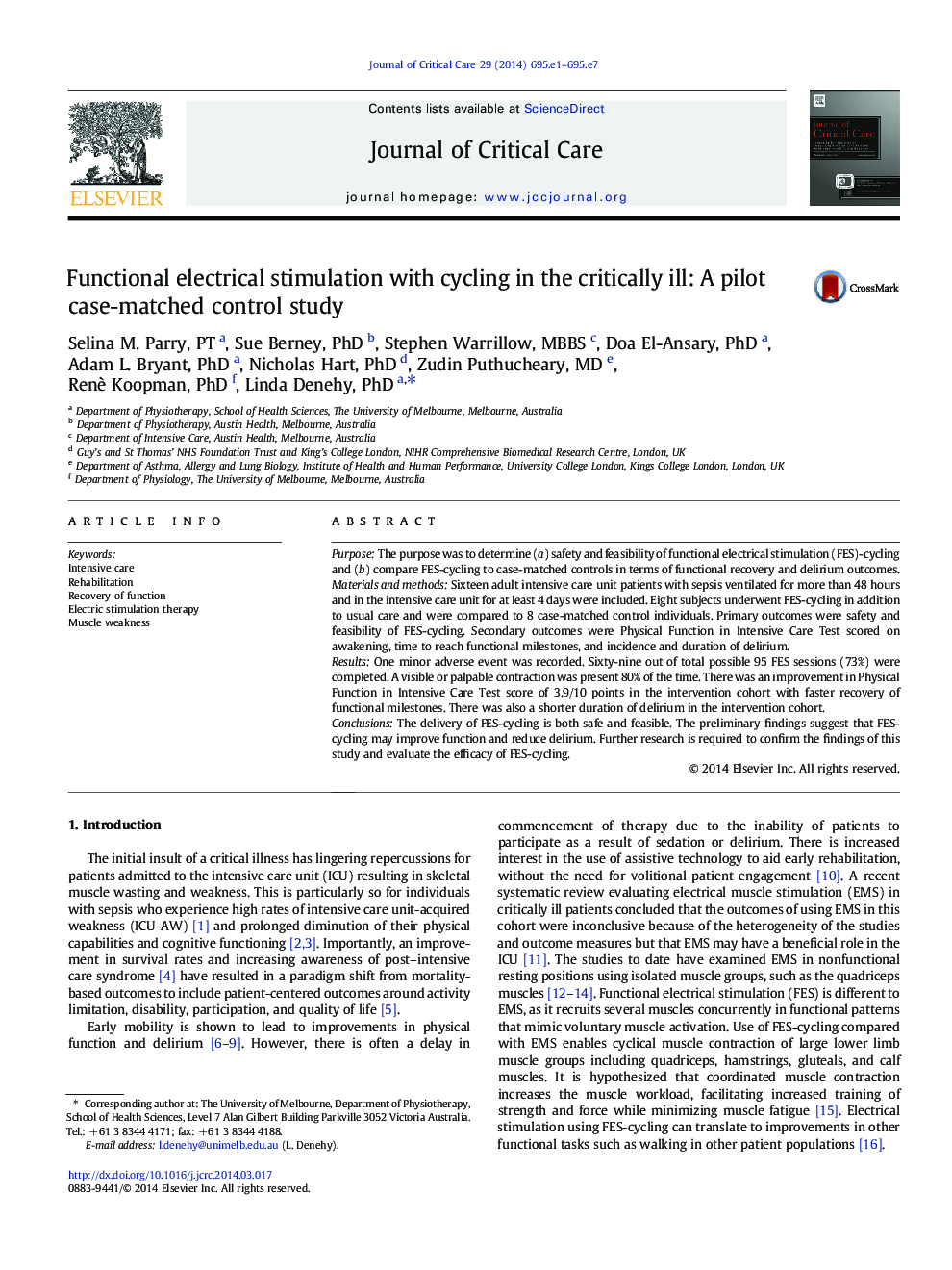| Article ID | Journal | Published Year | Pages | File Type |
|---|---|---|---|---|
| 5886579 | Journal of Critical Care | 2014 | 7 Pages |
PurposeThe purpose was to determine (a) safety and feasibility of functional electrical stimulation (FES)-cycling and (b) compare FES-cycling to case-matched controls in terms of functional recovery and delirium outcomes.Materials and methodsSixteen adult intensive care unit patients with sepsis ventilated for more than 48 hours and in the intensive care unit for at least 4 days were included. Eight subjects underwent FES-cycling in addition to usual care and were compared to 8 case-matched control individuals. Primary outcomes were safety and feasibility of FES-cycling. Secondary outcomes were Physical Function in Intensive Care Test scored on awakening, time to reach functional milestones, and incidence and duration of delirium.ResultsOne minor adverse event was recorded. Sixty-nine out of total possible 95 FES sessions (73%) were completed. A visible or palpable contraction was present 80% of the time. There was an improvement in Physical Function in Intensive Care Test score of 3.9/10 points in the intervention cohort with faster recovery of functional milestones. There was also a shorter duration of delirium in the intervention cohort.ConclusionsThe delivery of FES-cycling is both safe and feasible. The preliminary findings suggest that FES-cycling may improve function and reduce delirium. Further research is required to confirm the findings of this study and evaluate the efficacy of FES-cycling.
